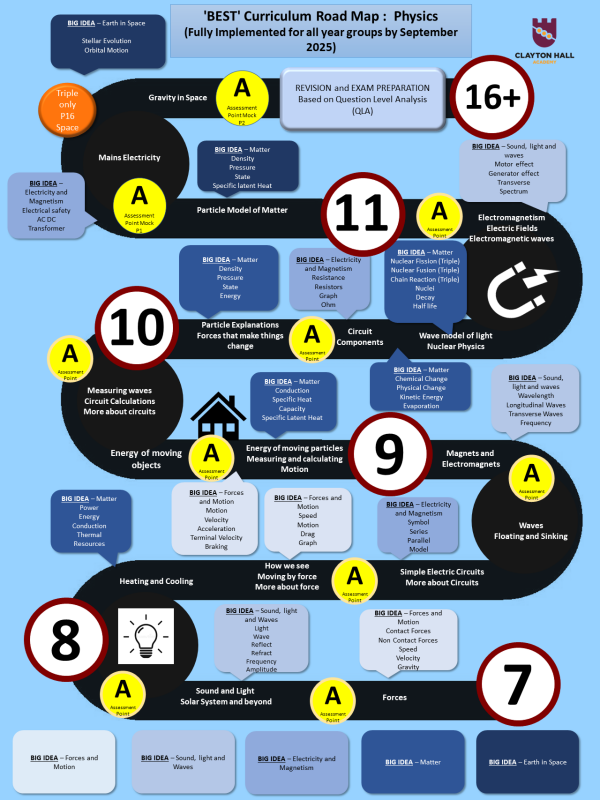Physics
Our Curriculum Intent
Our Curriculum Intent in Science is that:
- All students in Science are valued and nurtured to enable them to develop the resilience that will be essential for them to meet their potential now and in the future.
- All students understand why Science learning is relevant to them in their daily/future lives.
- All students are given the opportunity to develop the depth and breadth of knowledge in Science that, not only prepares them for future exam and career success, but crucially enables them to develop as a person with a wide range of experience and skills.
- All students develop the disciplinary knowledge and practical skills necessary to enable them to investigate the world around them successfully both within a lab setting and safely in their everyday lives.
- All students understand the STEM/STEAM careers that are available to them and challenge gender stereotypes that might otherwise limit their potential in future.
- Students understand PSHE concepts and British values within the context of the Science curriculum.














